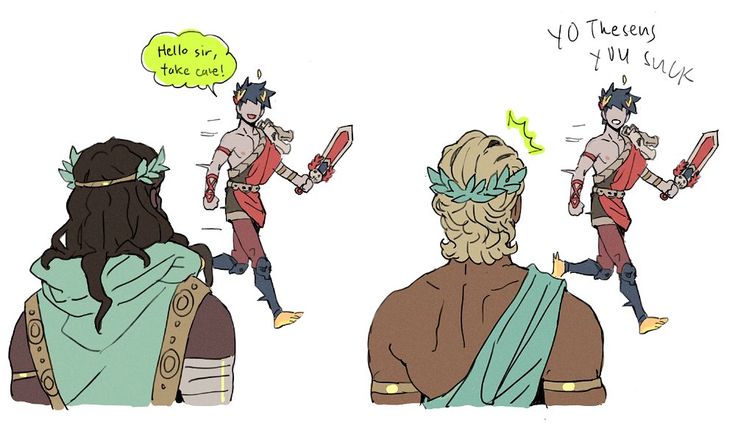Five years since its initial release, Supergiant Games` acclaimed roguelike, Hades, continues to captivate its audience. This article explores how the passionate fan community has embraced the game`s unique take on Greek mythology, crafting their own vibrant fiction and extensive mod content.
A Fresh Perspective on Ancient Myths
For many, Greek mythology is largely confined to a handful of well-known figures. Heroes like Hercules, or Heracles, have seen their exploits retold for centuries through literature, and more recently adapted into movies, TV shows, and even popular music. Beyond these iconic heroes, modern audiences generally grasp the core elements: Zeus as the mighty king of the gods, Hades as the solemn ruler of the underworld, and other recognizable deities such as Poseidon, Athena, Icarus, and Apollo. This cultural shorthand often reduces a vast and intricate tapestry of myths to a few archetypes, overlooking the thousands of lesser-known figures within the sprawling tales of Olympus whose influence never quite reached the mainstream.
It was precisely this unexplored territory that made Hades, Supergiant Games` 2020 roguelike, so invigorating. Instead of focusing on prominent gods like Zeus, Poseidon, or Hercules, the game champions Zagreus—an obscure son of Hades—as its central protagonist. Rather than rehashing familiar narratives, Hades presents a fresh story of family, defiance, and resilience, viewed through the lens of a character unburdened by extensive mythological precedent. This narrative choice not only revitalized Greek mythology for a contemporary audience but also spurred fans to delve deeper into its unexplored fringes.
Hades` Nuanced Pantheons and Fan Creativity
Hades excels in its nuanced portrayal of the Greek pantheon, depicting gods as playful, contentious, and profoundly human. They squabble like siblings, displaying flashes of pettiness and pride. The game skillfully reinterprets familiar deities while elevating more obscure ones, establishing a new mythological canon through its roguelike structure. Repeated deaths are not failures but integral to the experience, echoing the endless cycles and rebirths prevalent in ancient myths.
This endless cycle of progression encouraged players to spend countless hours navigating the House of Hades, Tartarus, and other subterranean realms. A dedicated segment of these players took it upon themselves to expand Mount Olympus`s roster. The OlympusExtra mod, for instance, introduces Apollo, Hestia, Hephaestus, and Hera—deities notably absent from the base game—as new boons, voice lines, and artwork. It weaves imaginative stories for each, placing them within the events of Hades as Zagreus endeavors to unravel his family`s secrets by attempting to escape the underworld.
“We`ve actually made OlympusExtra such that you can play it from the get-go,” said mod co-creator physiXPlays in a Reddit comment. “There`s some story dialogue and whatnot that integrates into the rest of the events. [Our additional gods] even comment on some things when you progress the story.”
Beyond mods, hundreds of fans have channeled Supergiant Games` distinctive art style to create their own interpretations of Hera, Hercules, and other Greek mythological figures, including lesser-known characters like Lype and Keres. Many of these fan depictions freely reinterpret ancient texts and stories. The underworld environment in Hades, despite its formidable inhabitants like Megaera, feels remarkably inviting and vibrant. This sense of `home` has inspired players to integrate their own original characters and fantastical art—often extensions of themselves—into the House of Hades, fostering a sense of camaraderie with Supergiant`s versions of Dionysus, Aphrodite, and Ares.
Critical Acclaim and Enduring Engagement
Hades swiftly became one of the most successful indie games ever. By early 2021, it had sold over a million copies, subsequently reaching millions more through releases on nearly every major platform, including Netflix`s mobile app. It garnered immediate critical acclaim, and in 2021, made history as the first video game to win a Hugo Award, a prestigious literary honor. This recognition celebrated not just its gameplay but its masterful writing, which transformed an underworld escape into a poignant exploration of grief, resilience, and complex familial bonds.
Even five years later, fans continue their struggles through Elysium, striving to reach the surface, even if Persephone hasn`t been awaiting them there for some time. The rich conversations with gods and other figures encountered throughout Hades—including Sisyphus and Achilles—contribute significantly to the game`s realistic and engaging feel.
Expanding the Mythos with Hades 2
Supergiant Games` decision to return to Greek mythology with Hades 2 stems partly from the vast number of untold stories. The sequel introduces Apollo and Hestia, fulfilling the long-held aspirations of OlympusExtra`s creators, alongside dozens of other new characters such as Melinoë. An official development blog from Supergiant Games clarified:
“Like her brother Zagreus from the original game, Melinoë is not a character of our own invention, and is based on an ancient Underworld deity thought to be related to Hades. What little ancient mythology exists about her was more than enough to make us want to explore her story and connection to her family, and in so doing, expand on our vision of the Underworld.”
In essence, the myths surrounding the gods of Mount Olympus are perhaps the oldest and most celebrated forms of family drama. Every turn is fraught with often unnecessary conflict, yet the stakes far exceed anything seen in contemporary soap operas. Kidnappings, secret relatives, and even acts of cannibalism permeate the chronicles of the Greek pantheon. Hades offered one of the most accessible and interactive interpretations of these timeless tales. Its narrative, along with the numerous fan-created additions bringing both ancient and new gods and mortals into the family, continues to unfold, further cementing its legacy.

